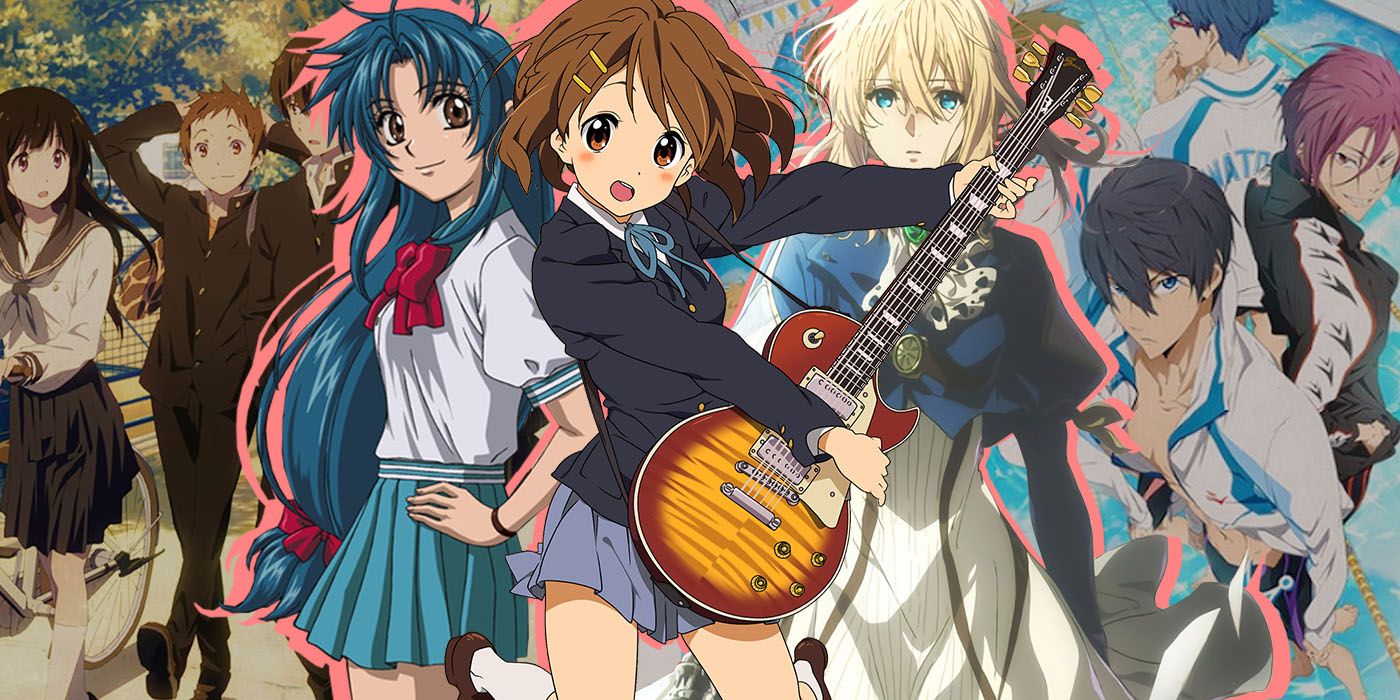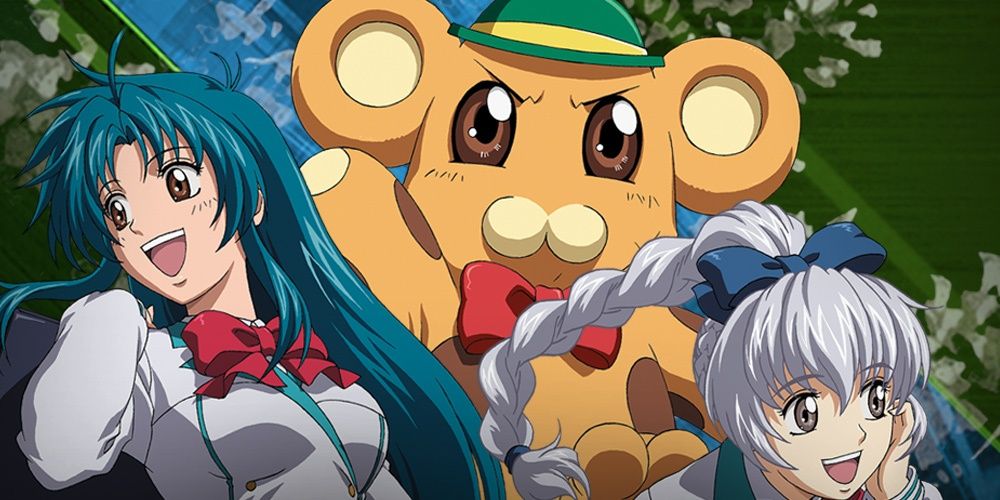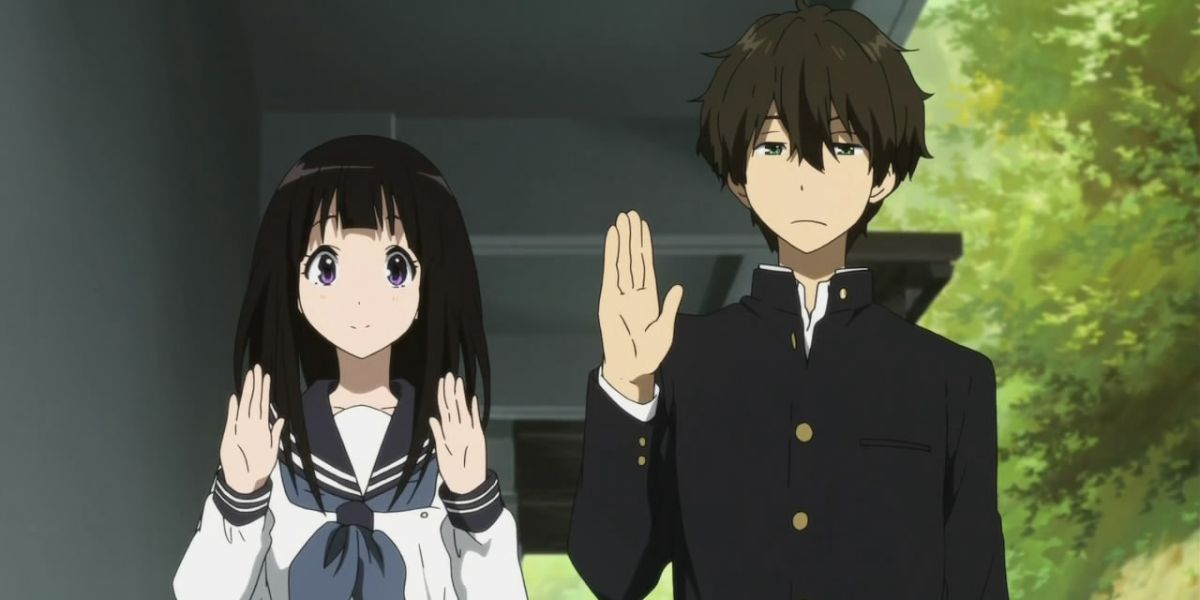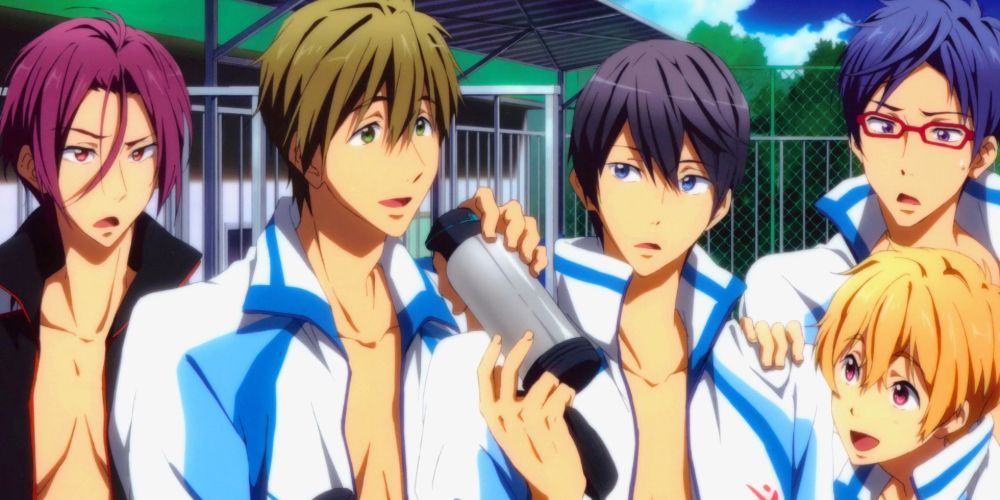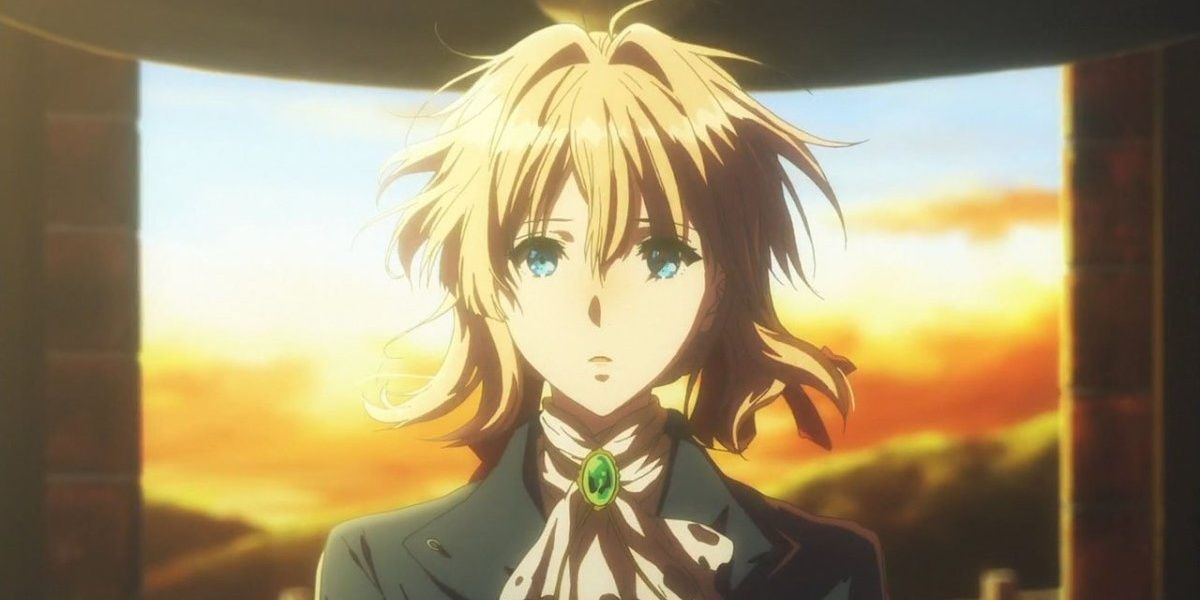Kyoto Animation, affectionately known as KyoAni, has one of the most distinctive art styles of all currently active anime studios -- their works are always immediately recognizable, and the studio’s approach to quality over quantity is reflected in these visuals. Kyoto Animation is also known for its focus on creating a gender-balanced workforce, actively encouraging more women to enter the industry -- as well as for anime industry workers to be properly paid for the efforts.
Since its formation in 1981 and its first anime title as lead producer in 2003 to today, here are five of the best shows KyoAni has released to date.
Full Metal Panic? Fumoffu (2003)
Just sometimes, having less in the way of involved plot and more in the way of dumb rom-com hijinks really does pay off. A primarily comedic affair that frequently crosses the line into outright parody, Fumoffu is actually a sequel to Full Metal Panic!, itself a mecha action series with a far more serious tone. This follows Sousuke Sagara, a member of a covert anti-terrorist private military organization. When Sousuke is tasked with protecting a Japanese high school girl named Kaname Chidori, who is being targeted by various other organizations for unknown reasons, he moves to Japan and transfers into her school to watch over her.
Where the initial Full Metal Panic! has a tendency to take itself extremely seriously, Fumoffu does itself a huge favor by ditching this approach entirely and instead choosing to focus on a collection of endearingly silly side stories, which often feature cheerfully bawdy humor and good-natured ribbing of its own plot and characters. As the very first offering from Kyoto Animation as lead producer nearly two decades ago, Fumoffu showed exactly what the studio was capable of bringing to the table.
K-On! (2009-10)
Particularly in the early and mid-2000s, anime featuring casts of adorable doe-eyed young girls became runaway hits as moe titles gained in popularity and raised the concept of cute to a whole new level. While the core concept of “cute girls doing cute things” was already well-established by the likes of Lucky Star and Azumanga Daioh, K-On! effortlessly fitted into the same niche but elevated the subgenre with its highly polished presentation.
The series follows four high school girls who join the light music club of their private all-girls school in order to save the club from being disbanded. While newcomer Yui Hirasawa has absolutely no experience playing any musical instrument, she eventually becomes a superb guitar player, although the anime is just as much about the girls’ day-to-day lives, both in and out of school, as it is about music. Undeniably cute despite its largely inconsequential story, K-On! certainly doesn’t lack charm, and its gentle humor makes the heavily slice-of-life material a very easy watch.
Hyouka (2012)
Easily one of Kyoto Animation’s most complexly character-driven shows to date, Hyouka is, on its surface, a relatively low-stakes mystery title. Centering on a high school student named student Hotarou Oreki and his fellow members of the school’s classic literature club, including a perpetually curious girl named Eru Chitanda, the group solve various school and small-town mysteries, largely for their own amusement.
If that sounds somewhat dull, it’s important to keep in mind that it’s the surprisingly emotionally mature cast that lends Hyouka such gravitas. The characters may seem one-note at first glance, but still waters run deep, and the genuinely smart writing means there’s a lot going on beneath the surface. Complemented by the sometimes exquisite art style and often cleverly subtle camerawork, to say nothing of its excellent soundtrack, Hyouka manages to do it all, and in a way that makes the series fairly rewatchable on top of it, as the smaller details can be easily missed the first time around.
Free! Iwatobi Swim Club (2013)
Interestingly, Free! was never originally intended to be a full TV series -- it was only after a 30-second promo ad went viral that a petition was created to entice KyoAni into creating a fully-fledged title. The story is centered around a small swimming club and its male members, most of whom have already swum competitively in their childhood and now aim to qualify for and rank in high school tournaments.
The series received a lot of attention upon its release, some of it unwelcome, as certain anime viewers felt that Kyoto Animation should continue to cater to its large male fanbase, whereas Free! commanded enormous attention from a newly-formed female-driven fan following. Regardless, the show is surprisingly well-written at times, and while some have criticized it for relying heavily on its ‘manservice’ to drive the story, its characters have more depth (pun intended) than viewers might first guess. As a sports anime, the visuals are also focused on portraying the characters in action, at which the series does an excellent job thanks to its crisp, vivid artwork and smoothly detailed animation.
Violet Evergarden (2018)
Undoubtedly one of Kyoto Animation’s most popular anime to date, Violet Evergarden is a step outside the studio’s box of well-crafted but not necessarily innovative shows about high school students and school clubs. In the wake of a bloody four-year war on the fictional continent of Telesis, the titular character -- a young and seemingly emotionless girl raised solely as a weapon -- finds herself without a commander or family. After recovering from her wounds, she finds employment as an Auto Memory Doll, ghostwriting letters at an agency that serves clients who either cannot write or need help expressing themselves.
Tonally, the series frequently delves into topics that are rather painful as Violet, along with many other characters, come to terms with their post-war trauma and psychological battle scars, which don’t heal as easily as physical ones. The often pleasant slice-of-life vignettes mask more serious themes, and these can be incredibly emotionally impactful at times. While not exactly subtle -- with one of the main criticisms of the show being that Violet’s robotic personality is exaggerated to the point of being unintentionally comical -- Violet Evergarden is no less heartfelt for that, and also makes for an undisputedly stunning-looking title.

